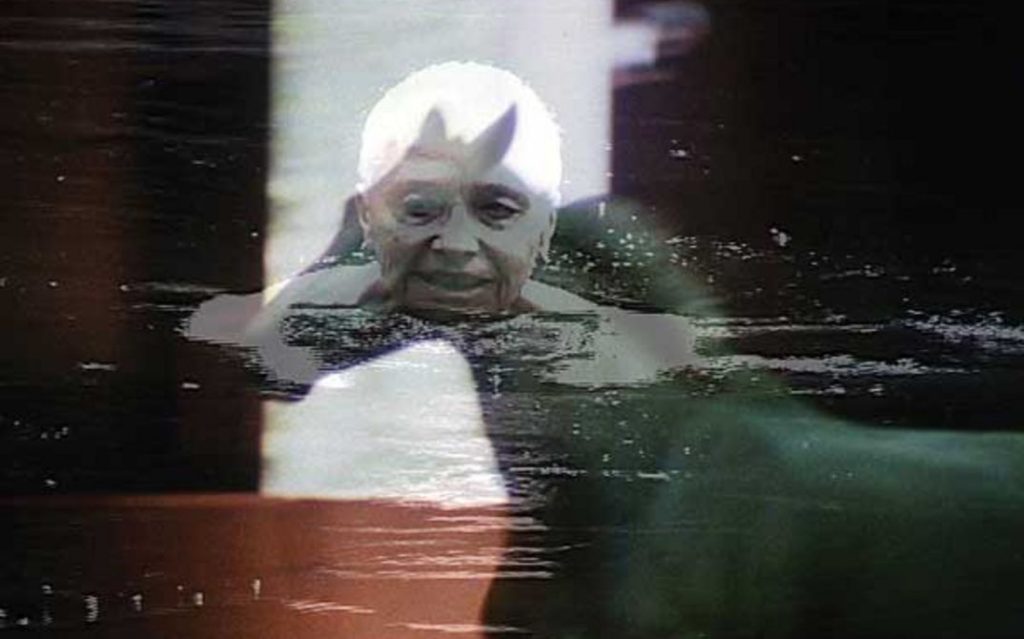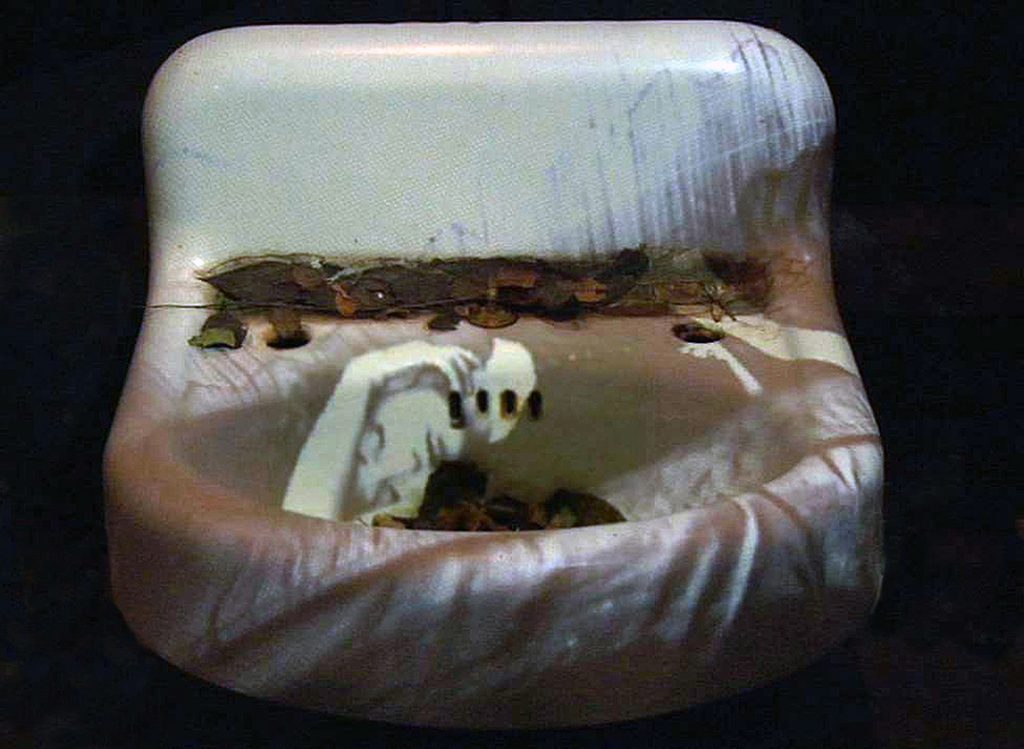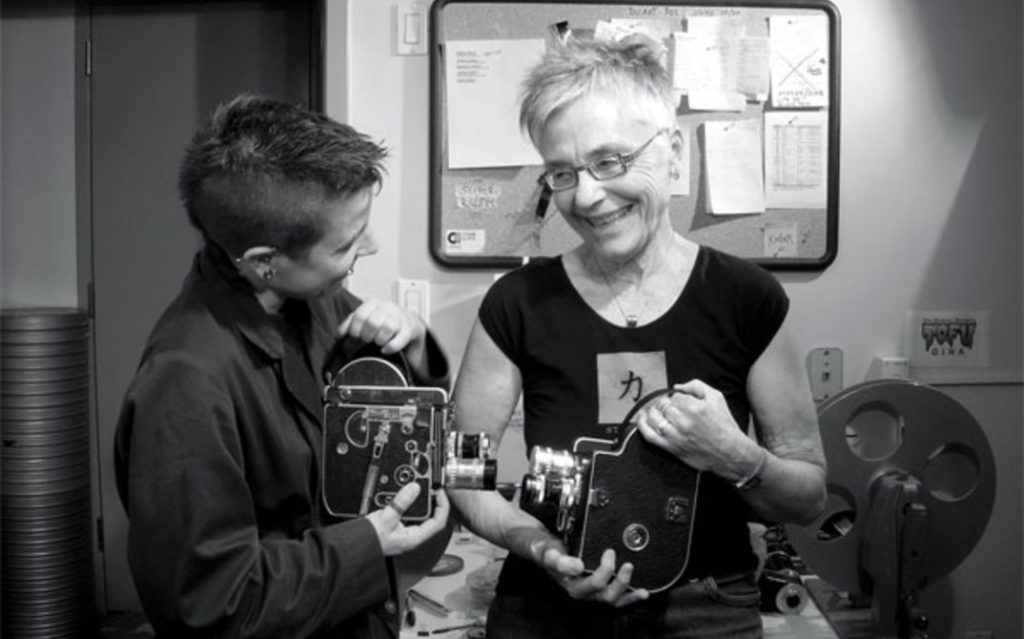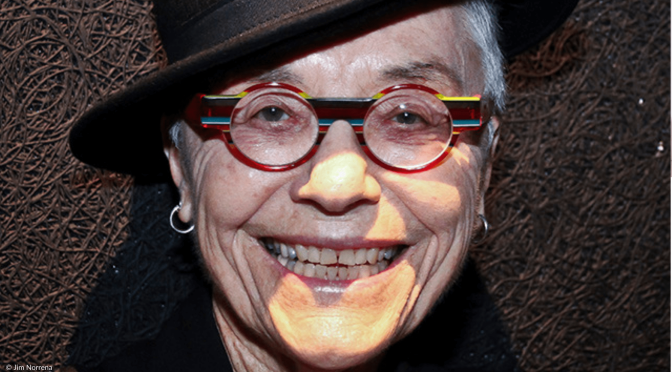Barbara Hammer (1939–2019) was a groundbreaking pioneer of lesbian cinema and is considered one of the most important experimental filmmakers of her generation. Her works revolutionized the portrayal of lesbian bodies and love in film and remain an essential part of queer cinema today. Over the course of her career, she was honored with three TEDDY AWARDS.
This year’s Berlinale Forum Expanded will showcase three of her films: A Horse is Not a Metaphor, Maya Deren’s Sink, and Generations. Her early short films, including Dyketactics and Menses (both from 1974), are now regarded as classics of queer cinema.
Over five decades, the activist filmmaker not only created groundbreaking works but also dedicated herself as a mentor, teacher, and advocate for young filmmakers. Her works have been exhibited in galleries and museums worldwide. After her cancer diagnosis in 2006, Hammer radically integrated her illness into her artistic practice, creating deeply moving works on the subject of mortality.
Barbara Hammer was a trailblazer in the male-dominated world of experimental cinema, bringing queer perspectives into both feminist and cinematic discourse. In the 1980s, she explored abstract forms and worked with found footage, writing a manifesto on the “politics of abstraction,” which emphasized the formal queerness of cinema.
With Nitrate Kisses in the 1990s, she delved into the queer archive and created one of her most significant feature-length films. She explored the fragile traces of queer life before Stonewall and countered the invisibility of these stories with powerful imagery. Her work became a living archive of queer memory—and an enduring inspiration for future generations.
A Horse Is Not a Metaphor (2008)

Filmmaker Barbara Hammer fights ovarian cancer with visions of horseback riding and river swimming in her experimental film, A Horse Is Not a Metaphor.
As a “cancer thriver” rather than “survivor,” Barbara Hammer rides the red hills of Georgia O’Keefe’s Ghost Ranch in New Mexico, the grassy foothills of the Big Horn in Wyoming, and leafy paths in Woodstock, New York, changing illness into recovery.
The haunting and wondrous music of Meredith Monk underscores and celebrates in this experiential/experimental film that lifts us up when we might be most discouraged.
Maya Deren’s Sink (2010)

This evocative tribute to the mother of American avant-garde film calls forth the spirit of one who was larger than life, as recounted by those who knew her. Friends and contemporaries float through Maya Deren’s homes, recalling in tiny bits and pieces words of her architectural and personal interior space. Clips from Deren’s films are projected back into the spaces where they were originally filmed. Fluid light projections of intimate space provide an elusive agency for a filmmaker most of us will never know.
Generations (2011)

Generations is a film about mentoring and passing on the tradition of personal experimental filmmaking. Barbara Hammer, 70 years old, hands the camera to Gina Carducci (today Joey Carducci), a young queer filmmaker. Shooting during the last days of the amusement park Astroland at Coney Island, New York, they find that the inevitable fact of ageing echoes in the architecture of the amusement park and in the emulsion of the film medium itself. Editing completely separately both picture and sound, the filmmakers join their films in the middle when they’ve finished, making a true generational and experimental experiment.
